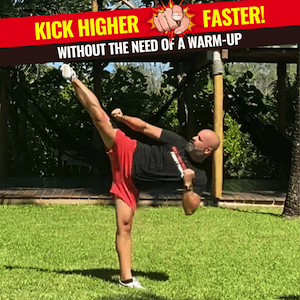As a veteran over 40, you can thrive by prioritizing physical health through regular exercise and balanced eating, and by engaging in mindfulness practices like meditation to reduce anxiety. Fostering social connections, pursuing continuous learning, and seeking professional help when needed also support your overall well-being. Leverage your military experience, build resilience strategies, and cultivate a growth mindset to navigate life’s challenges. Emphasize self-care habits, including stress reduction techniques, to promote holistic health. By implementing these evidence-based strategies, you’ll be well on your way to revealing a more fulfilling future, and there’s even more to discover about living your best life.
Prioritize Physical Health
Regularly prioritizing physical health is essential for Veterans over 40, as it can greatly reduce the risk of chronic diseases and improve mental wellbeing. By engaging in regular physical activity, you’ll not only improve your overall life satisfaction but also set a positive example for your family.
Studies have shown that exercise can lead to a 25% improvement in overall life satisfaction among participants in programs like THRIVE.
As a Veteran, you can enhance your physical health by participating in community fitness programs, which offer social support and camaraderie that increase motivation and adherence to exercise routines. This, in turn, contributes to overall wellbeing.
Additionally, a balanced diet rich in whole foods supports weight management and reduces inflammation, which is particularly important for managing service-related injuries or conditions.
Engage in Mindfulness Practices
By embracing mindfulness practices, you can take the reins of your mental wellbeing and cultivate a deeper sense of calm and clarity.
Mindfulness practices, such as meditation and deep breathing exercises, have been shown to considerably reduce anxiety levels. In fact, studies have reported a 29% decrease in anxiety among participants of the THRIVE program, which incorporates mindfulness techniques.
Regular mindfulness practice can also improve focus and cognitive function, addressing common challenges faced by veterans, such as “brain fog” associated with stress or mental health issues.
Engaging in mindfulness can enhance your mental health and overall life satisfaction. By practicing mindfulness, you can build resilience and cope with stress, promoting a proactive approach to mental health that aligns with the Whole Health framework emphasized in the THRIVE program.
With regular practice, you can experience a considerable improvement in life satisfaction, as evidenced by a reported 25% improvement among THRIVE program participants.
Foster Social Connections

That’s why it’s essential to actively cultivate new relationships and engage with your community. Programs like THRIVE offer group sessions that facilitate connections among Veterans, promoting a supportive community that can improve mental health metrics.
By participating, you can experience a 28% decrease in depression and a 29% decrease in anxiety levels. Building social connections can also enhance overall life satisfaction, with a documented 25% improvement among Veterans participating in community-building workshops.
By fostering lasting friendships and networks, you’ll gain ongoing emotional support, increased resilience, and better coping strategies. Don’t underestimate the importance of social connectivity in maintaining your overall health.
Invest in nurturing supportive relationships within the Veteran community, and you’ll see the positive impact it can have on your life. By prioritizing social connections, you’ll be better equipped to handle life’s challenges and flourish.
Pursue Continuous Learning
As you build and maintain your social connections, you’ll likely discover new interests and ambitions – and pursuing continuous learning is a great way to fuel these passions. By taking advantage of educational resources, such as the post-9/11 GI Bill, you can enhance your skills and knowledge, leading to higher graduation rates and improved academic performance.
Engage in workshops and programs like the THRIVE initiative, which can improve your mental and financial health, promoting personal growth and resilience as you navigate your post-service life.
Continuous learning opportunities, including vocational training and professional development, allow you to translate your military skills into civilian job requirements, facilitating a smoother shift into the workforce.
You may also find success in entrepreneurial ventures, with studies showing that veterans are twice as likely to pursue business ownership and have a higher five-year success rate compared to the national average.
Seek Professional Help

As you navigate life over 40, it’s crucial to prioritize your mental health and seek professional help when needed.
You can start by exploring resources such as the Veterans Crisis Line, which offers confidential support 24/7, or programs like THRIVE, which has shown significant improvements in mental health metrics.
Mental Health Resources
You’re not alone in your struggle with mental health challenges; seeking professional help is a brave and essential step towards healing.
As a veteran over 40, you have access to various mental health resources that can support your journey towards recovery. The Department of Veterans Affairs collaborates with the Department of Defense to provide continuous mental health support, recognizing the interconnectedness of mental and physical health.
You can access 24/7 confidential help through the Veterans Crisis Line by calling 988 and pressing 1, texting 838255, or chatting online.
Structured support programs like THRIVE have shown significant benefits, with participants experiencing a 28% decrease in depression and a 29% decrease in anxiety levels. Engaging in peer support activities has also been linked to positive outcomes in health, life skills, and social integration.
Additionally, the Department of Veterans Affairs offers access to educational resources and career advancement programs, which have been shown to improve overall health outcomes.
Don’t hesitate to reach out for help – taking the first step towards healing is a sign of strength, not weakness. Utilize these resources to prioritize your mental health and well-being.
Coping With Trauma
Facing the aftermath of traumatic experiences can be a formidable challenge, but seeking professional help is an essential step towards healing and recovery. You don’t have to navigate this journey alone; professional help can notably reduce symptoms of trauma.
Studies have shown that therapeutic programs like THRIVE can decrease depression and anxiety levels by 28% and 29%, respectively.
As you shift to civilian life, it’s critical to prioritize your mental health. Veterans Affairs Canada (VAC) provides various mental health resources, including access to treatment for chronic mental health conditions.
This support is fundamental for addressing the interconnected nature of mental and physical health. Engaging with peer support activities can also enhance your coping strategies for trauma.
Advocate for Veterans’ Rights
You play an essential role in advocating for veterans’ rights, which is vital for ensuring access to quality healthcare and support services.
By supporting veterans’ advocacy efforts, you can help push for legislation that addresses systemic challenges and promotes smooth shifts from military to civilian life.
Your active engagement in promoting veterans’ rights can lead to tangible improvements in mental health metrics, benefits, and overall well-being for those who’ve served.
Veterans’ Rights Legislation
Legislative landmarks, such as the Veterans Health Care Eligibility Reform Act, have greatly impacted the lives of veterans, guaranteeing they receive necessary health care services.
As a veteran over 40, you’re likely to benefit from this act, which expands eligibility for health care services. You’ve earned the right to quality medical care, and this legislation helps make that a reality.
In addition to health care, other legislation protects your rights as a veteran. The Veterans Compensation Act provides financial compensation for service-related disabilities, supporting your overall well-being.
The Veterans Employment Opportunities Act gives you a preference in federal hiring, making it easier to shift into civilian employment.
The Servicemembers Civil Relief Act safeguards your rights regarding rental agreements, mortgage interest rates, and protection from default judgments while on active duty.
Familiarize yourself with these laws to guarantee you’re taking full advantage of the benefits available to you.
Supporting Veterans’ Advocacy
Effective advocacy is essential for veterans to guarantee their rights and needs are represented and addressed.
As a veteran over 40, you understand the importance of having a voice in the decisions that affect your life and services.
Veterans’ advocacy emphasizes the necessity of addressing systemic barriers and ensuring that policies reflect the unique needs of veterans, especially women and marginalized groups within the veteran population.
Leverage Military Experience

Beyond the battlefield, military experience holds immense value in the civilian world, particularly when it comes to career development. As a veteran, you possess specialized training and experience that can greatly enhance your contributions in civilian roles, making you a valuable asset to employers across various industries.
You’ve developed essential skills such as discipline, leadership, teamwork, and the ability to work under pressure, which are highly sought after in the business world.
You can leverage your military experience to thrive in your career by:
- Highlighting transferable skills: Emphasize the skills you’ve developed in the military, such as leadership, communication, and problem-solving, which are valuable in civilian roles.
- Pursuing entrepreneurial opportunities: With your innovative mindset and adaptability, you’re more likely to succeed as an entrepreneur, and programs like THRIVE can support your changeover.
- Advocating for employment rights: As a veteran, you have certain employment rights that protect your changeover into civilian roles, so be sure to educate yourself on these benefits and advocate for your needs.
Build Resilience Strategies
As you focus on building resilience strategies, you’ll be able to boost your mental toughness and expand your coping skills, leading to a more fulfilling life.
By doing so, you’ll be better equipped to handle life’s challenges and make a positive impact on those around you.
Boost Mental Toughness
Developing mental toughness is a crucial aspect of thriving, particularly for Veterans who’ve faced unique challenges during their service. As you navigate life after service, you may encounter health issues that can impact your mental well-being. By boosting your mental toughness, you can better manage stress and adapt to life’s challenges.
Structured support sessions, such as those in the THRIVE program, can help you cultivate psychological flexibility and improve your mental resilience. In fact, THRIVE program participants have reported a 28% decrease in depression and a 29% decrease in anxiety levels.
Here are three key strategies to help you boost your mental toughness:
- Practice Acceptance and Commitment Therapy: This therapy helps you develop psychological flexibility, enabling you to better manage stress and adapt to life’s challenges.
- Engage in Positive Psychology Practices: Emphasizing positive psychology practices can lead to a 25% improvement in overall life satisfaction, contributing to greater mental toughness.
- Incorporate Stress Reduction Techniques: Incorporating stress reduction techniques, such as mindfulness and self-compassion, into your daily routine can enhance your ability to cope with adversity and build long-term resilience.
Expand Coping Skills
Through life’s challenges, you’ve likely developed coping skills that have helped you navigate difficult situations. As a Veteran, you’ve probably honed these skills through your military service and post-service experiences.
However, it’s vital to continue expanding your coping skills to maintain good mental health and build resilience strategies. The THRIVE program, which focuses on coping skills and personal growth, has reported a 25% improvement in overall life satisfaction among participating Veterans.
You can also benefit from group support sessions, which enhance connections and facilitate sharing of coping strategies among Veterans. This approach has contributed to a 28% decrease in reported depression and a 29% decrease in anxiety levels among participants.
Engaging in workshops that emphasize positive psychology can help you build a toolbox of coping skills, fostering resilience in the face of life’s challenges. By actively participating in community-building activities, you’ll develop stronger support networks, which are fundamental for maintaining mental health and coping effectively with life’s changes.
Cultivate a Growth Mindset

Beyond the change from military to civilian life, cultivating a growth mindset becomes an essential component of thriving as a veteran over 40.
By adopting this mindset, you’ll be better equipped to tackle challenges and view failures as opportunities for growth, leading to improved resilience and personal development.
Engaging in programs like the THRIVE initiative can greatly enhance your mental health, reducing depression and anxiety by 28% and 29%, respectively.
By focusing on whole health and positive psychology, you’ll be more likely to adopt a positive outlook and proactive approach to health, leading to a 25% increase in overall life satisfaction.
Here are three key benefits of cultivating a growth mindset:
- Improved mental health: By adopting a growth mindset, you’ll be more resilient in the face of challenges and better equipped to manage stress and anxiety.
- Increased adaptability: Embracing continuous learning and adaptability will help you navigate the change to civilian life and pursue new opportunities.
- Enhanced personal growth: With a growth mindset, you’ll be more likely to pursue new passions and interests, leading to a more fulfilling life post-military.
Emphasize Self-Care Habits
As you cultivate a growth mindset, it’s equally important to focus on nurturing your overall well-being by emphasizing self-care habits. Engaging in regular self-care practices can have a significant impact on your mental health.
Veterans who participated in the THRIVE program reported a 28% decrease in depression and a 29% decrease in anxiety levels. By incorporating activities such as mindfulness, physical fitness, and nutrition into your daily routines, you can enhance your overall life satisfaction.
Building a support network through group self-care practices can also foster community connections, which can facilitate emotional resilience and well-being.
Don’t underestimate the importance of spirituality and stress reduction techniques in your self-care routine, as they can contribute to a holistic approach to health. Prioritizing self-care habits can lead to a sustainable lifestyle change, promoting long-term well-being and quality of life.
As you navigate the complexities of aging, it’s essential to make self-care a priority. By doing so, you’ll be better equipped to manage stress, improve your mental health, and maintain a healthy, thriving lifestyle.
Regular self-care practices can become a cornerstone of your overall wellness strategy.
In Summary
As you navigate life over 40, implementing these strategies can greatly enhance your overall well-being. Curiously, research shows that veterans who maintain a strong sense of purpose are 2.5 times more likely to experience post-traumatic growth (Gallagher, 2017). By prioritizing your physical and mental health, leveraging your military experience, and cultivating resilience, you’ll be well on your way to thriving in this new chapter of life. Stay committed, and you’ll reap the rewards.



